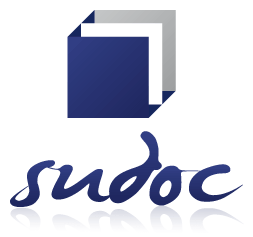Carencias en la evaluación del pensamiento computacional
shortcomings in the evaluation of computational thinking
Abstract
Computational thinking is a competency that benefits problem solving as in computer sciences as in the other disciplines and everyday life. Currently, it is of interest to include computational thinking in the curricula of all educational levels, however, there are shortcomings such as the lack of evaluation tools in real contexts and the nonexistence of application models oriented on each discipline. This essay’s goal is to show the arguments that support these shortcomings. First, we present a discussion about the computational thinking concept. Later, we introduce a common framework used to design evaluations in computer sciences. After, to contextualize the causes of the evaluation’s shortcomings on computational thinking, we compare with a framework used in medicine. The analysis suggests that the shortcomings are caused by the utilization of Bloom’s taxonomy as the framework.
Downloads
References
Aho, A. (2012). Computation and computational thinking. The Computer Journal, 55(7), 832-835. https://doi.org/10.1093/comjnl/bxs074
Dagiene, V., & Futschek, G. (2008). Bebras international contest on informatics and computer literacy: Criteria for good tasks. In International Conference on Informatics in Secondary Schools-Evolution and Perspectives, 19-30. https://doi.org/10.1007/978-3-540-69924-8_2
Fernández, J. T. (2011). La evaluación de las competencias en contextos no formales: dispositivos e instrumentos de evaluación. Revista de educación, (354), 341-342. https://doi.org/10.4438/1988-592X-RE-2011-354-018
González, Y. A. C., & Muñoz-Repiso, A. G. V. (2020). Fortaleciendo el pensamiento computacional y habilidades sociales mediante actividades de aprendizaje con robótica educativa en niveles escolares iniciales. Píxel-Bit. Revista de Medios y Educación, (58), 117-142. https://doi.org/10.12795/pixelbit.75059
Grover, S. (2011). Robotics and engineering for middle and high school students to develop computational thinking. In Annual Meeting of the American Educational Research Association, New Orleans, LA.
Grover, S., Basu, S., Bienkowski, M., Eagle, M., Diana, N., & Stamper, J. (2017). A framework for using hypothesis-driven approaches to support data-driven learning analytics in measuring computational thinking in block-based programming environments. ACM Transactions on Computing Education (TOCE), 17(3), 1-25. https://doi.org/10.1145/3105910
Korkmaz, Ö., Cakir, R., & Özden, M. Y. (2017). A validity and reliability study of the computational thinking scales (CTS). Computers in Human Behavior, 72, 558-569. https://doi.org/10.1016/j.chb.2017.01.005
Meerbaum-Salant, O., Armoni, M., & Ben-Ari, M. (2013). Learning computer science concepts with scratch. Computer Science Education, 23(3), 239-264. https://doi.org/10.1145/1839594.1839607
Mohaghegh, M., & McCauley, M. (2016). Computational Thinking: The Skill Set of the 21st Century. International Journal of Computer Science and Information Technologies, 7(3), 1524-1530.
https://www.researchbank.ac.nz/handle/10652/3422
Moreno-León, J., Robles, G., & Román-González, M. (2015). Dr. Scratch: Automatic analysis of scratch projects to assess and foster computational thinking. RED. Revista de Educación a Distancia, 15(46), 1-23.
https://www.um.es/ead/red/46/moreno_robles.pdf
Pérez, J. (2021). Percepción de estudiantes universitarios sobre el pensamiento computacional. REDU. Revista de Docencia Universitaria, 19(1), 111-127. https://doi.org/10.4995/redu.2021.15491
Pérez, J. (2019a). El pensamiento computacional en la vida cotidiana. Revista Scientific, 4(13), 293-306. https://doi.org/10.29394/Scientific.issn.2542-2987.2019.4.13.15.293-306
Pérez, J. (2019b). DINADI: una estrategia para el diagnóstico de nativos digitales en el ámbito universitario. Revista Paradigma, 40(1), 56-75.
http://revistaparadigma.online/ojs/index.php/paradigma/article/view/719
Pérez, J. & Azuaje, M. (2019) LE1: una estrategia amistosa para un curso introductorio de programación. Revista Educación En Ingeniería, 14(28), 45-53. https://doi.org/10.26507/rei.v14n28.998
Pérez, J., & Castro, J. (2018a). Estímulo del razonamiento lógico mediante el juego Millonario en C para la asignatura “Programación 1”. Revista Tekhné, 21(3), 8-15. http://revistasenlinea.saber.ucab.edu.ve/temas/index.php/tekhne/article/view/3804
Pérez, J., & Castro, J. (2018b). LRS1: Un robot social de bajo costo para la asignatura “Programación 1”. Revista Colombiana de Tecnologías de Avanzada, 2(32), 68-77.
http://revistas.unipamplona.edu.co/ojs_viceinves/index.php/RCTA/article/view/3028
Pérez, J., & Pedroza, O. (2018). LM1: una metodología de estudio para la asignatura “Programación 1”. Educere, 22(73), 635-648.
http://erevistas.saber.ula.ve/index.php/educere/article/view/13496
Román-González, M. (2015). Computational thinking test: Design guidelines and content validation. In Proceedings of the 7th Annual International Conference on Education and New Learning Technologies (EDULEARN 2015), 2436-2444. http://doi.org/10.13140/RG.2.1.4203.4329
Román-González, M., Moreno-León, J., & Robles, G. (2019). Combining Assessment Tools for a Comprehensive Evaluation of Computational Thinking Interventions. Computational Thinking Education, 79-98. https://doi.org/10.1007/978-981-13-6528-7_6
Román-González, M., Pérez-González, J. C., & Jiménez-Fernández, C. (2017). Which cognitive abilities underlie computational thinking? Criterion validity of the Computational Thinking Test. Computers in Human Behavior, 72, 678-691. https://doi.org/10.1016/j.chb.2016.08.047
Sondakh, D. E., Osman, K., & Zainudin, S. (2020). A Proposal for Holistic Assessment of Computational Thinking for Undergraduate: Content Validity. European Journal of Educational Research, 9(1), 33-50. https://doi.org/10.12973/eu-jer.9.1.33
Thampy, H., Willert, E. & Ramani, S. (2019). Assessing Clinical Reasoning: Targeting the Higher Levels of the Pyramid. Journal of general internal medicine, 34(8), 1631-1636. https://doi.org/10.1007/s11606-019-04953-4
Thompson, E., Luxton-Reilly, A., Whalley, J. L., Hu, M., & Robbins, P. (2008). Bloom's taxonomy for CS assessment. In Proceedings of the tenth conference on Australasian computing education, 78, 155-161. https://dl.acm.org/doi/10.5555/1379249.1379265
Wing, J. M. (2006). Computational thinking. Communications of the ACM, 49(3), 33-35. https://doi.org/10.1145/1118178.1118215































